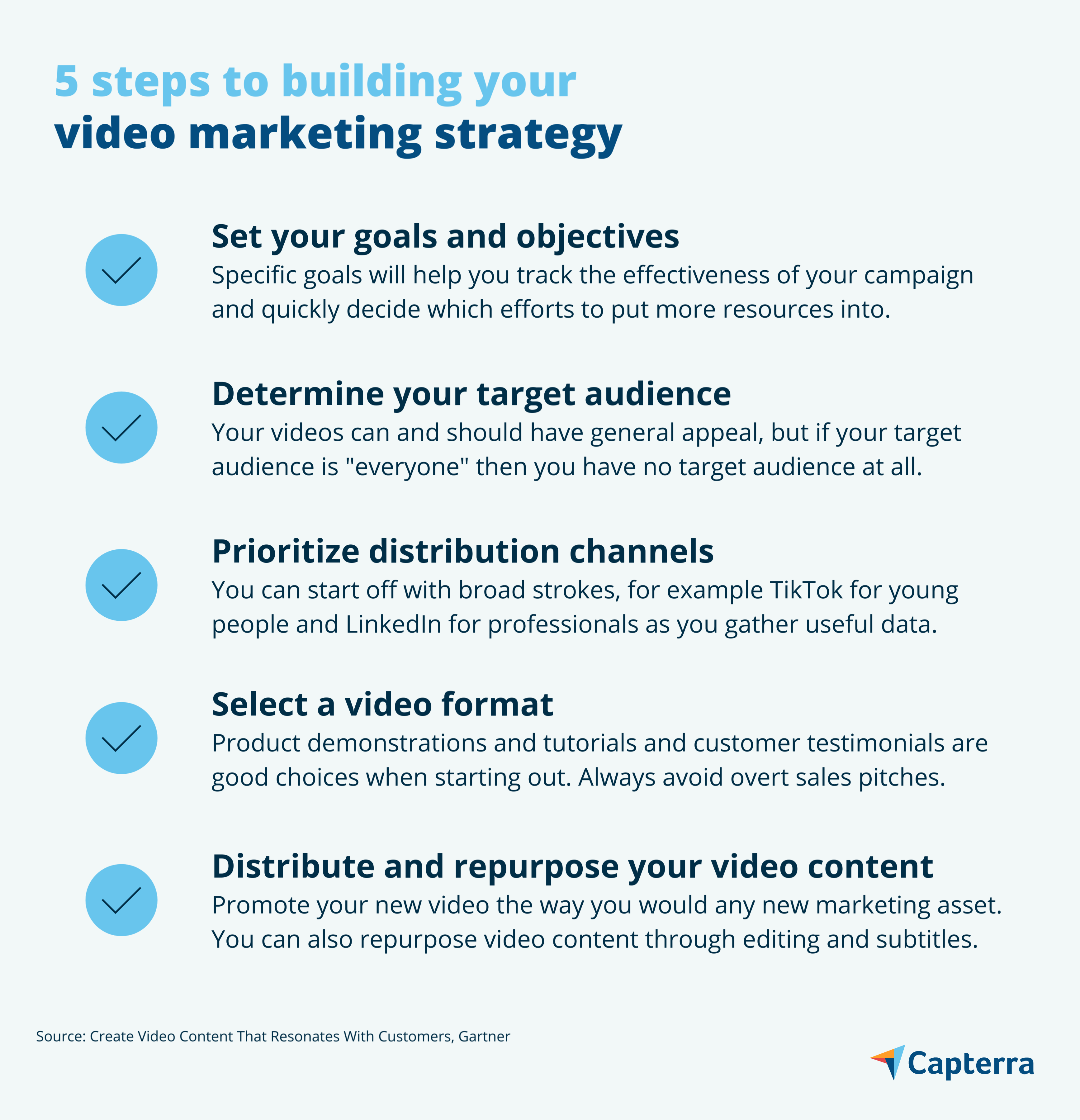
is a powerful tool that businesses can use to engage with their audience and promote their products or services. In this article, you will learn about some effective strategies to make your video marketing efforts more successful. We will discuss the importance of creating high-quality, informative, and engaging videos, as well as the significance of optimizing your videos for search engines. Additionally, we will explore how to leverage social media platforms and collaborate with influencers to maximize the reach of your videos. Whether you’re new to video marketing or looking to improve your existing strategy, this article will provide you with valuable insights and tips to achieve your goals.
Understanding Video Marketing
Video marketing has become an integral part of any successful marketing strategy in today’s digital landscape. It allows businesses to connect with their audience on a deeper level by telling compelling stories, evoking emotions, and delivering valuable information. In this article, we will explore the importance of video marketing, the benefits it offers, and effective strategies to implement in your video marketing campaign.
The Importance of Video Marketing
Video marketing is crucial for businesses of all sizes and industries. With the rise of social media and online video platforms, consumers have increasingly turned to video content for entertainment, information, and product research. In fact, studies have shown that 85% of internet users in the United States watch videos online regularly, and this number is only expected to grow.
One of the main reasons video marketing is so important is that it allows businesses to engage their audience in a more interactive and memorable way compared to traditional text-based content. Videos can convey messages, emotions, and information more effectively, leading to higher engagement and conversion rates. Moreover, videos have the potential to go viral and reach a wider audience, boosting brand awareness and exposure.
Benefits of Video Marketing
Video marketing offers numerous benefits for businesses. Firstly, it improves search engine visibility. Videos are highly favored by search engines, so incorporating relevant keywords and optimizing video titles and descriptions can boost your website’s ranking on search engine result pages. This, in turn, increases organic traffic to your website and improves overall online visibility.
Secondly, videos help increase audience engagement. People are more likely to watch a video from start to finish compared to reading an entire article. By captivating your audience with compelling content, storytelling techniques, and emotional appeal, you can keep them engaged and interested in your brand. This leads to longer website visits, lower bounce rates, and improved conversion rates.
Another benefit of video marketing is its ability to educate and inform. Through videos, businesses can explain complex concepts, demonstrate product features, and provide tutorials. This builds trust and establishes credibility, as customers appreciate businesses that take the time to educate them. Moreover, videos allow for better communication and understanding, reducing the likelihood of misunderstandings or confusion.
Target Audience and Research
To effectively implement a video marketing strategy, it is crucial to understand your target audience and conduct market research. Without this knowledge, you risk creating content that does not resonate with your audience or fails to address their needs and preferences.
Identifying Target Audience
Start by identifying your target audience demographic, including age, gender, location, and interests. Consider their needs, pain points, and motivations. By understanding your target audience, you can create videos that speak directly to them and address their specific concerns or desires. This targeted approach ensures that your videos are relevant and resonate with your audience, increasing their likelihood of engagement and conversion.
Conducting Market Research
Market research is equally important to understand your competitors and market trends. Analyze your competitors’ video marketing strategies and identify what works and what doesn’t. Look for gaps or opportunities in the market that you can capitalize on. Additionally, stay up to date with the latest industry trends and consumer preferences. This insight will help you create videos that are timely, relevant, and aligned with your target audience’s interests.
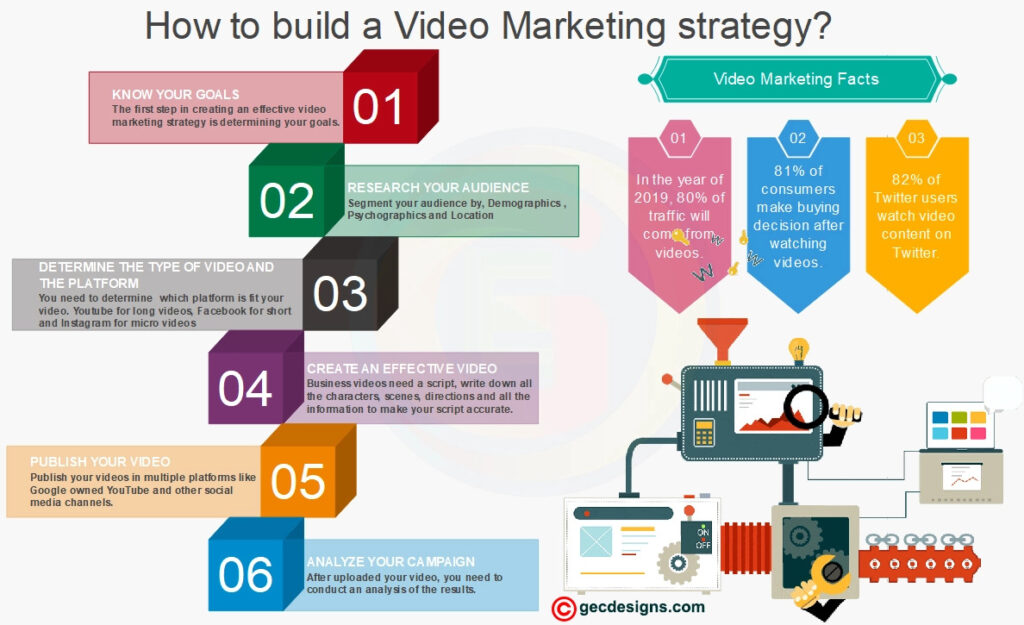
This image is property of gecdesigns.com.
Creating Compelling Content
Creating compelling content is the foundation of a successful video marketing strategy. Your content should be engaging, informative, and emotionally appealing to capture your audience’s attention and keep them hooked.
Identifying Storytelling Techniques
Storytelling is a powerful technique that can make your videos more memorable and impactful. By telling a story, you create a narrative that connects with your audience on a deeper level. Start by identifying a central theme or message that you want to convey. Develop characters, conflicts, and resolutions that resonate with your target audience. This will make your videos relatable and create an emotional connection with your viewers.
Using Emotional Appeal in Videos
Emotions play a significant role in decision-making and consumer behavior. By leveraging emotional appeal in your videos, you can evoke specific feelings that drive action. Whether it’s humor, sadness, inspiration, or excitement, tap into emotions that align with your brand and messaging. This will create a memorable experience for your audience and increase the likelihood of them sharing your videos with others.
Choosing the Right Platform
Choosing the right video hosting platform is crucial for reaching your target audience effectively and maximizing your video marketing efforts.
Understanding Different Video Hosting Platforms
There are several video hosting platforms available, each with its own unique features and audience. YouTube is the largest and most popular platform, with billions of active users and extensive reach. It offers great discoverability and allows you to embed videos on your website easily. However, with fierce competition, it can be challenging to stand out.
Alternatively, platforms like Vimeo and Wistia cater to a more professional audience, offering advanced analytics and customization options. These platforms are ideal for businesses that prioritize quality and control over reach. Additionally, consider social media platforms such as Facebook, Instagram, and LinkedIn, which offer native video uploading and targeted advertising options.
Evaluating Platform Analytics
Once you’ve chosen a platform, it’s essential to analyze its analytics to understand how your videos are performing and how you can improve. Pay attention to metrics such as views, watch time, engagement rate, and click-through rate. This data will provide insights into what types of videos resonate with your audience and help you make informed decisions for future content creation.
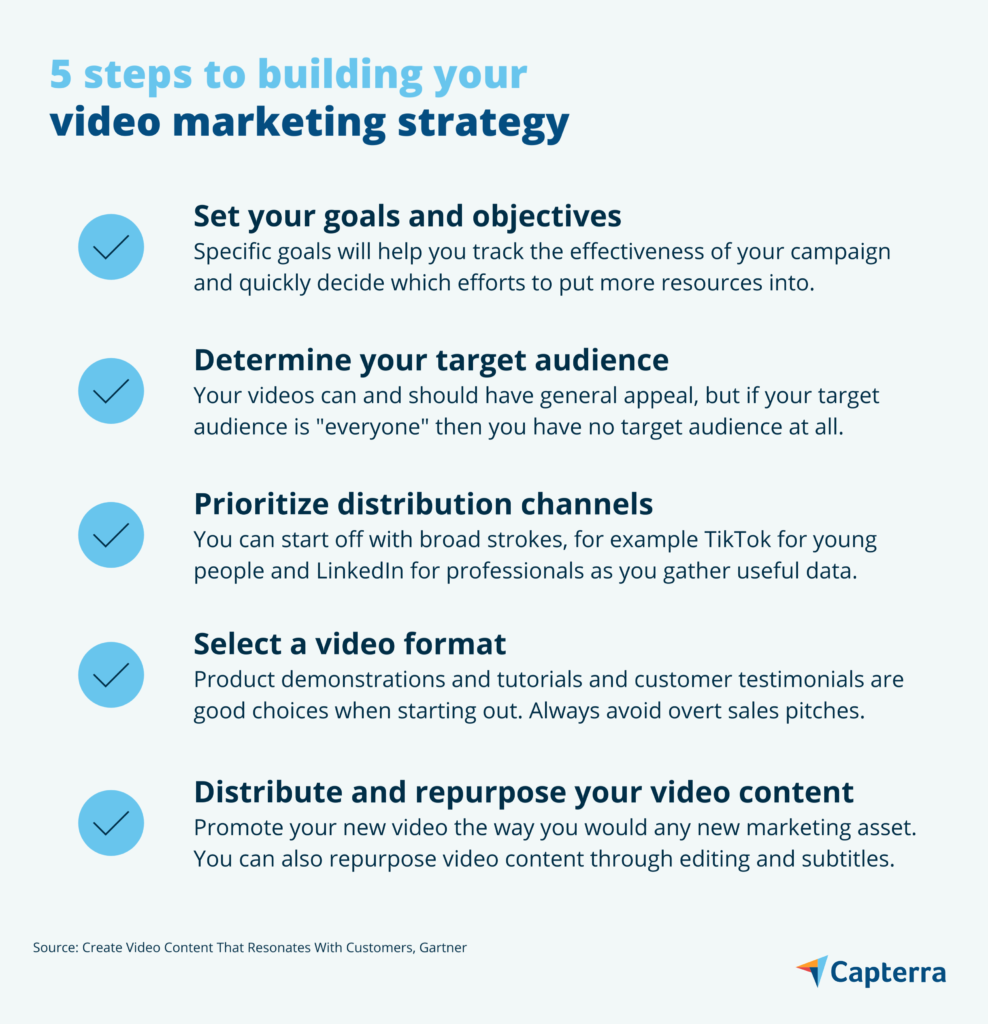
This image is property of images.ctfassets.net.
Optimizing Videos for Search Engines
optimizing your videos for search engines is vital to ensure maximum visibility and reach.
Keyword Research for Video SEO
Just like optimizing webpages, keyword research is crucial for video SEO. Identify relevant keywords and incorporate them naturally into your video titles, descriptions, and tags. This will increase the chances of your videos ranking higher on search engine result pages and being discovered by your target audience.
Optimizing Video Titles and Descriptions
Video titles and descriptions should be concise, descriptive, and keyword-rich. The title should grab attention and give viewers an idea of what to expect from the video, while the description should provide additional information and context. Consider adding timestamps, chapters, and relevant links in the description to enhance the user experience and encourage higher engagement.
Promoting Videos on Social Media
To maximize the reach and impact of your videos, it’s essential to promote them on social media.
Utilizing Popular Social Media Channels
Identify the social media channels that are most relevant to your target audience and distribute your videos strategically. Facebook, Instagram, LinkedIn, and Twitter are popular platforms for video promotion, offering various advertising options, such as video ads, story ads, and sponsored posts. Leverage these platforms to reach a broader audience and increase video engagement.
Creating shareable video content increases the chances of your videos going viral and reaching a wider audience. Craft videos that are entertaining, informative, or thought-provoking, and include a call to action asking viewers to share the video with their network. Additionally, consider collaborating with influencers or partnering with complementary brands to increase the visibility and shareability of your videos.
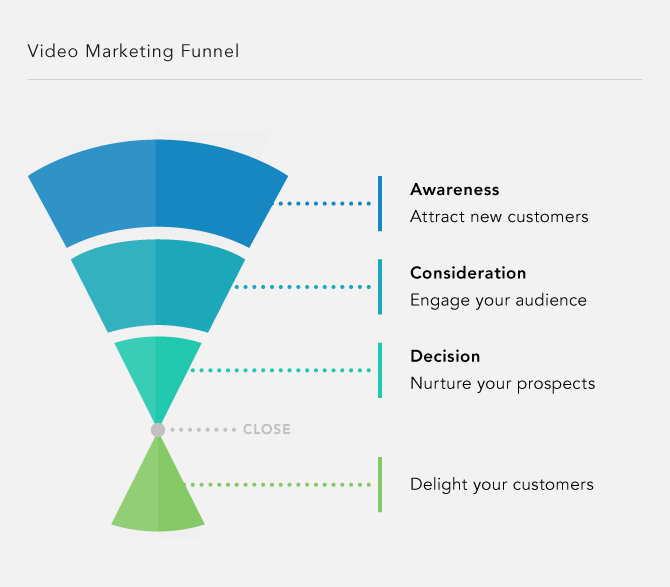
This image is property of www.lemonlight.com.
Understanding Video Metrics
Measuring and analyzing video metrics is essential to gauge the effectiveness of your video marketing strategy and make data-driven decisions.
Measuring Video Performance
Monitor key video performance metrics such as views, watch time, engagement rate, and click-through rate. These metrics provide insights into how well your videos are performing and whether they are achieving your desired goals. By regularly analyzing video performance, you can identify patterns, trends, and areas for improvement, ultimately optimizing your video marketing strategy.
Analyzing Viewer Engagement
Engagement metrics such as likes, comments, shares, and subscriptions indicate how well your videos are resonating with your audience. Pay attention to the types of videos that generate the highest engagement and replicate those elements in future content. Respond to comments and engage with your audience to foster a sense of community and loyalty.
Implementing a Video Marketing Strategy
Now that you understand the importance of video marketing and key strategies for effective implementation, it’s time to create a comprehensive video marketing strategy.
Setting Goals and Objectives
Start by defining clear goals and objectives for your video marketing campaign. What do you want to achieve? Is it increased brand awareness, higher conversion rates, or improved customer engagement? By setting specific, measurable, achievable, relevant, and time-bound (SMART) goals, you can track progress and evaluate the success of your video marketing efforts.
Creating a Content Calendar
Develop a content calendar that outlines the topics, themes, and release schedule for your videos. This ensures consistency and helps you stay organized throughout your video marketing campaign. Incorporate key dates, events, and trends that are relevant to your target audience to maximize engagement and visibility. Additionally, allow flexibility to adapt and respond to any unforeseen changes or opportunities.
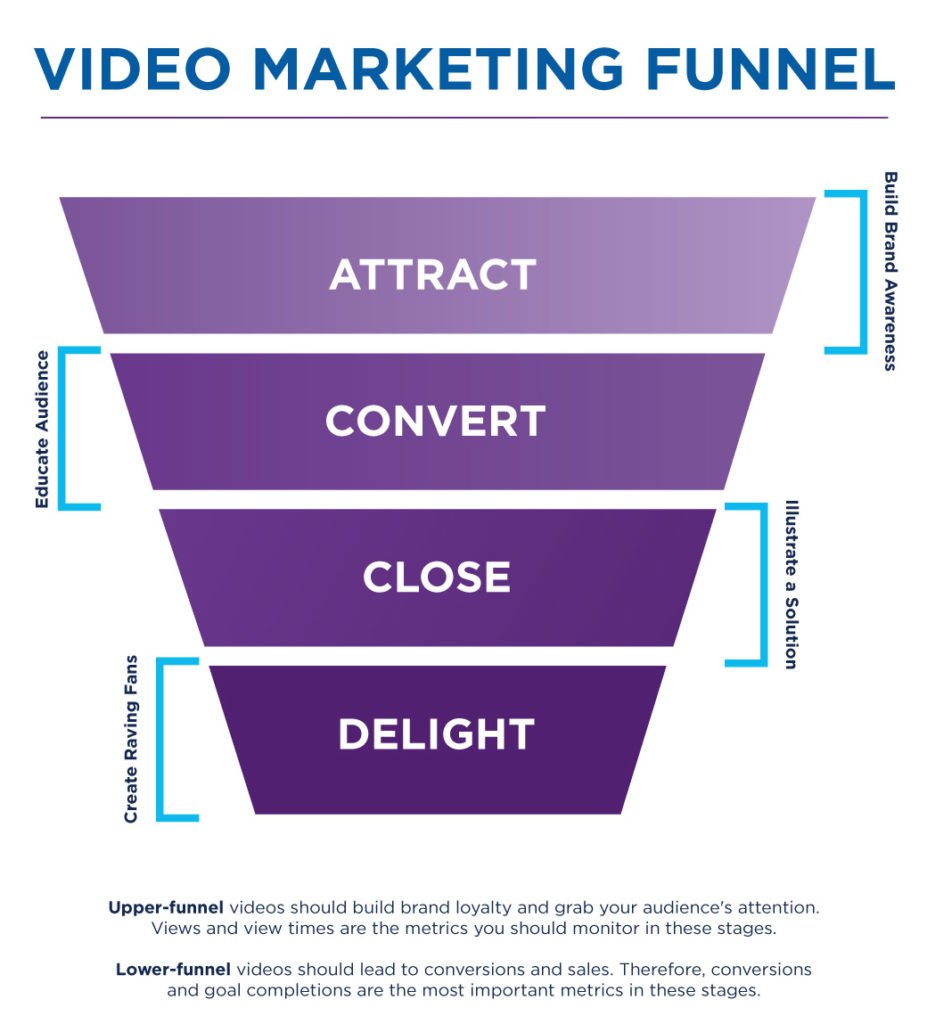
This image is property of www.bluecorona.com.
Monitoring and Adjusting Strategies
Once your video marketing strategy is in motion, it’s important to monitor performance metrics and make adjustments as needed.
Tracking Performance Metrics
Continuously monitor video performance metrics to identify trends, areas for improvement, and potential opportunities. Regularly assess whether your videos are achieving your goals and objectives and adjust your strategy accordingly. Experiment with different types of videos, content formats, and distribution channels to find the optimal mix for your audience.
Adjusting Video Marketing Tactics
Stay up to date with industry trends, emerging technologies, and consumer preferences. As the digital landscape evolves, so does video marketing. Be open to adjusting your tactics and strategies to stay ahead of the curve and remain relevant to your audience. Embrace new platforms, leverage emerging technologies, and experiment with innovative storytelling techniques to keep your video marketing fresh and engaging.
Conclusion
Effective video marketing is a powerful tool for businesses to connect with their audience, build brand awareness, and drive customer engagement. By understanding the importance of video marketing, identifying your target audience, creating compelling content, choosing the right platform, optimizing videos for search engines, promoting on social media, understanding video metrics, implementing a video marketing strategy, and continuously monitoring and adjusting your strategies, you can successfully harness the power of video in your marketing efforts.

This image is property of media.sproutsocial.com.

